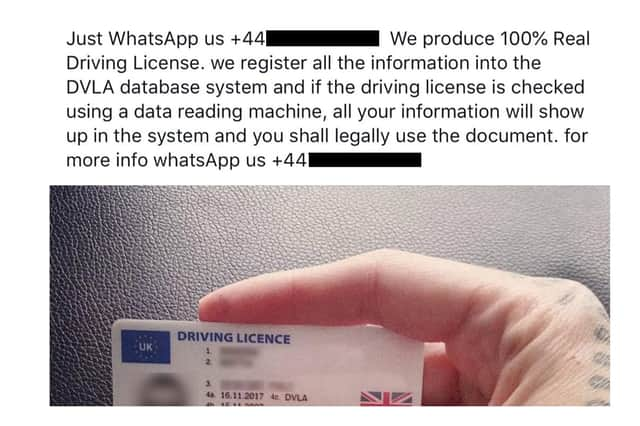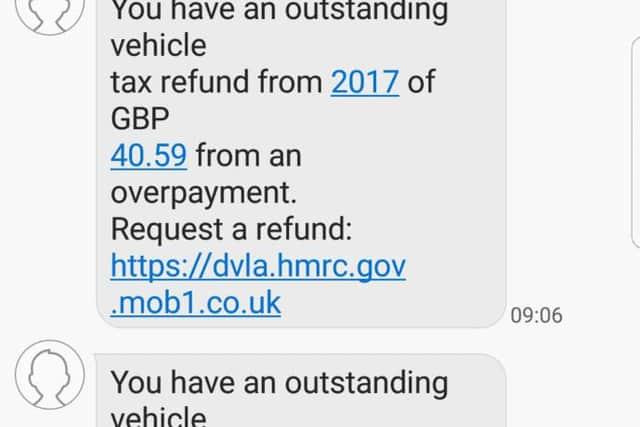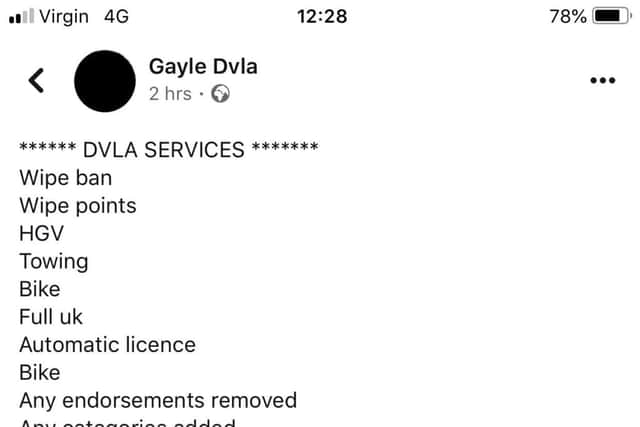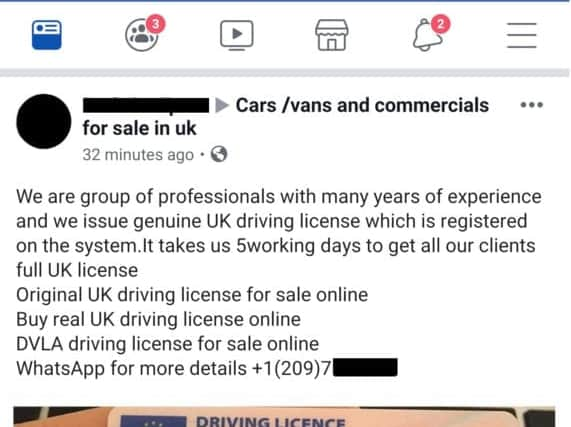DVLA warns drivers to beware of these online scams


The DVLA has released pictures of some of the latest scams being used to con motorists out of their money.
The tricks range from fake tax refunds designed to steal bank details to fraudulent offers to delete driving convictions or issue new driving licences.
Advertisement
Hide AdAdvertisement
Hide AdThe DVLA’s action comes as new figures show a 20 per cent increase in scams reported to it last year. The tax and licensing body saw 1,538 reports of attempted fraud made to it in the last three months of 2019, up from 1,275 in the same period in 2018.


Criminals largely use fake websites, email, text or social media to target victims. Some pose as legitimate government agencies while others claim to be able to carry out specific services or offer official driver or vehicle documentation. In every case, they are a front for conning money out of drivers or stealing their banking or personal information.
(Photo: DVLA)
Among the latest examples shared by the DVLA are Facebook Marketplace adverts offering to issue “genuine” UK driving licences within five days and text messages claiming drivers are owed a car tax refund after overpaying.
The DVLA’s chief information security officer David Pope warned drivers that if an offer seems too good to be true, then it almost certainly is.


Advertisement
Hide AdAdvertisement
Hide AdHe said: “We’ve released examples of real life scams to help motorists understand when a scam is at work. These websites and messages are designed to trick people into believing they can access services that simply don’t exist such as removing penalty points from driving licences.
“All our tax refunds are generated automatically after a motorist has told us they have sold, scrapped or transferred their vehicle to someone else so we don’t ask for anyone to get in touch with us to claim their refund.
“We want to protect the public and if something seems too good to be true, then it almost certainly is. The only trusted source of DVLA information is GOV.UK
“It is also important to remember never to share images on social media that contain personal information, such as your driving licence and vehicle documents.”


(Photo: DVLA)
Advertisement
Hide AdAdvertisement
Hide AdHe also urged anyone with concerns about any calls, texts, emails or suspicious activity online, to report them to the police via Action Fraud immediately.
A spokesperson for Action Fraud said: “This can be a stressful time of year, sorting out finances for the year ahead. Fraudsters are aware of this and are using different ways to trick people.
“Taking a couple of minutes to familiarise yourself with a few simple online safety tips can be significant in protecting yourself from becoming a victim of online fraud.
“You should always be cautious when sharing personal information online and avoid being scammed by only using GOV.UK for government services online, such as the DVLA.
Advertisement
Hide AdAdvertisement
Hide Ad“If you believe you have been a victim of fraud, please report it to us.”
Fraud or cyber crime can be reported to Action Fraud by calling 0300 123 2040 (Monday to Friday, 8am to 8pm), or by using its online reporting tool, which is available 24/7.
(Photo: DVLA)